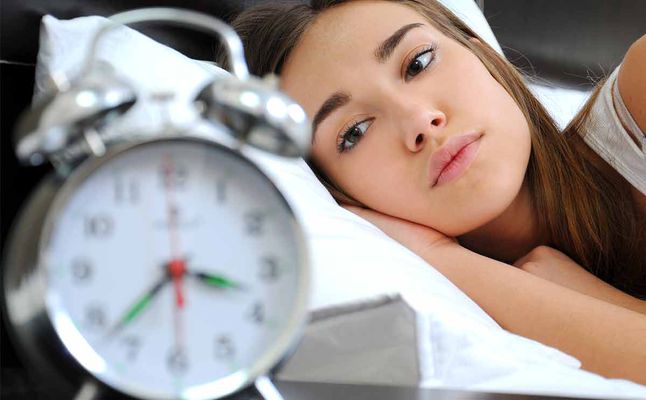
What are sleep disorders?
A group of conditions that affect the ability to sleep well on a regular basis. Various health conditions, some medications, stress anxiety are a few common reasons of sleep disorder. Most of us occasionally experience sleeping due to stress, hectic work schedule and multiple other issues. However, the frequent occurrence of these issues on a regular basis may indicate a sleeping disorder.
Depending on the type of disorder, people may have difficult time falling asleep or may feel extremely tired throughout the day. A continuous lack of sleep may have a negative impact on the overall health including mood, concentration.
In some cases, the sleeping disorder can be a sign of underlying diseases. A sleeping problem in such instances eventually goes away once the underlying illness is treated. For those cases where the sleeping disorder is not due to any underlying condition, a combination of medical treatments and lifestyle changes are required.
It is important to get diagnosed and treated right away if you are suspecting a sleep disorder. Ignoring sleep disorder not only affects your performance at work but can also strain in relationship and impair your ability to perform daily activities.
In this article we will discuss about the two most common sleep disorders- Insomnia and Hypersomnia
Insomnia
Insomnia is a type of sleep disorder in which a person finds it difficult to fall asleep or stay asleep. Insomnia has been associated with higher risk of developing chronic diseases
Causes of Insomnia
Insomnia can be caused due to physical or psychological factors. Sometimes insomnia can be due to some underlying disease while transient insomnia can be due to a recent event or incidence. Below are a few conditions that can cause insomnia:
a) Circadian rhythm issues: a disruption in circadian rhythm occurs in jetlags, job shift changes, extreme change in temperature and high altitude.
b) Psychological issues: Anxiety, bipolar disorder, anxiety, stress
c) Medical Conditions: Chronic pain, chronic fatigue, congestive heart reflux, angina, acid reflux diseases, chronic obstructive pulmonary disease, Parkinson’s disease, Alzheimer’s disease, hyperthyroidism, arthritis, brain lesion, tumour etc.
d) Hormones: Hormonal changes during pregnancy and menstruation.
e) Medications: Medications such as corticosteroids alpha blockers, beta blockers, ACE inhibitors, cholinesterase inhibitors, angiotensin II-receptor blockers etc. can cause insomnia.
f) Various other causes can be like sleeping next to a snoring partner
g) Another study conducted suggested that exposure to light from televisions and smartphones before going to sleep can affect natural melatonin levels. Alteration in the melatonin levels can affect the sleep patterns leading to insomnia.
Signs and symptoms
a) Difficulty in falling asleep
b) Waking during the night or waking earlier than desired
c) Feeling tired after night’s sleep
d) Fatigue during daytime
e) Anxiety, depression, irritability and mood swings
f) Headaches
g) Gastro-intestinal symptoms
h) Problem in concentrating on a various day to day tasks and activity
Types of Insomnia
Insomnia covers a wide range of sleeping disorders starting from sleep quality to reduced number of sleep hours.
Below are the three criteria of Insomnia based on the duration
1) Transient Insomnia: insomnia that lasts up to three nights
2) Acute insomnia: Insomnia that persists for several weeks, it is also known as short-term insomnia.
3) Chronic insomnia: insomnia that lasts up to months or even years. Research suggests that chronic insomnia is a side effect resulting from another primary problem or underlying condition.
Classification of insomnia based on the cause
1) Primary Insomnia: Insomnia that is not directly associated with any underlying health issues
2) Secondary Insomnia: Insomnia caused due to an underlying condition such as asthma, depression, anxiety, arthritis etc.
Risk factors
Insomnia can affect people of any age. However, there has been increased incidence of insomnia in adult females than adult males. However, some people who are more likely to develop insomnia are:
a) Travelers: People who travel between different time zone.
b) Shift workers: People with continuous change of shift in job.
c) Elderly
d) Adolescents or young adult students
e) Pregnant women
f) Women in their menopause
g) People with mental health disorders.
Hypersomnia
Hypersomnia also known as excessive sleepiness is a condition in which a person has trouble staying awake. People with hypersomnia can sleep anywhere and at any time; for instance, at work or even while driving.
Causes
Hypersomnia can occur due to various reasons, few of them are:
- Some sleep disorders such as sleep apnea (interruption of breathing during sleep), or narcolepsy (daytime sleepiness).
- Lack of sleep at night.
- Overweight
- Alcohol abuse
- Head injury
- Certain drugs such as tranquilizers and antihistamine
- Hereditary
- Depression
Signs and Symptoms
Common symptoms of hypersomnia are:
- Irritability
- Low energy
- Anxiety
- Loss of appetite
- Restlessness
- Difficulty remembering
Types
Hypersomnia can be classified into two types:
Primary Hypersomnia: Primary hypersomnia occurs due to fatigue and tiredness and is usually not associated with any underlying disease.
Secondary Hypersomnia: Hypersomnia caused due to underlying disease such as Parkinson’s disease, kidney failure, and chronic fatigue syndrome.
Hypersomnia can also be further classified as
Recurrent Hypersomnia: This is typically associated with recurrent, reversible episodes of hypersomnia along with other symptoms that occurs weeks or month apart.
Idiopathic Hypersomnia: When the cause is unknown the hypersomnia is called as Idiopathic Hypersomnia.
Post traumatic Hypersomnia: Children who suffer significant head trauma frequently experience significant sleep disturbances after the injury. This happens particularly in cases where the trauma causes significant loss of consciousness.
Diagnosis Of Sleep Disorder
If you think you have a sleep disorder, then talk to your doctor. Your doctor may carry out an evaluation which may include medical history, sleep history or physical examination. You may be asked to maintain a sleep diary for keeping track of your sleep patterns. In some cases you may be referred for sleep study.
Sleep Study is a set of tests that record what happens to your body during sleep. This study analyses if you have a problem with stages of sleep.
Sleep Study
The most common sleep studies are:
1) Polysomnogram: This test records various body function during sleep which includes eye movement, brain activity, oxygen and carbon dioxide blood levels, heart rate and rhythm, breathing rate and rhythm. It also monitors flow of air through your mouth and nose, snoring, body muscle movements, and chest and belly movement.
2) Multiple sleep latency tests: This test determines how long it takes you to fall asleep.
3) Maintenance of wakefulness test: This test measures whether you can stay awake during a time when you are normally awake.
4) Actigraphy: Your doctor may do these tests if she thinks that the cause of your insomnia is due to change in your work shift or due to disruption in circadian rhythm. In this test a device is tied on your wrist that looks like a watch. It measures your movement during sleep and when you are awake.
Sleep studies are usually done at sleep labs. But sleep studies can also be done at home at your convenience.
Other conditions where a sleep study is done
1) Sleep Apnea: Condition in which an adult stops breathing for 10seconds or longer.
2) Excessive snoring
3) Problems in staying awake during a daytime
4) Abnormal nighttime behaviors such as sleepwalking, night terrors or bed wetting
5) Problem in sleeping during the day because work on rotating shifts
How it is done
Sleep studies are usually conducted by trained sleep lab technician. It is a non-invasive test and is usually conducted during evenings or night. But if you have a sleeping habit during the day, the test can be done in daytime too. In this exam, you will be asked to sleep overnight in a lab set up with a comfortable bed. During the exam, stages of your sleep will be monitored with the help of an EEG.
Points to jot down beforehand to get the most out of your conversation:
1) Do you have trouble falling asleep, staying asleep, or do you wake up too early?
2) How many times a week do you have trouble sleeping like this?
3) What time do you go to bed, wake up, and nap during the day?
4) Is your weekend sleep schedule different from your weekday schedule?
5) Does your work schedule require you to adjust your sleep at all?
6) What do you do when you can get sleep
7) Is there anything you’ve done in the past that has helped you sleep?
8) Do you sleep alone or with your partner?
9) Description of your room, your bed etc.
10) Duration of insomnia
11) Any medical conditions?
For booking appointments, call us @ +91-80-49261111, +91-80-67458111 (or)
Download RxDx Smart Healthcare App Now!!!




